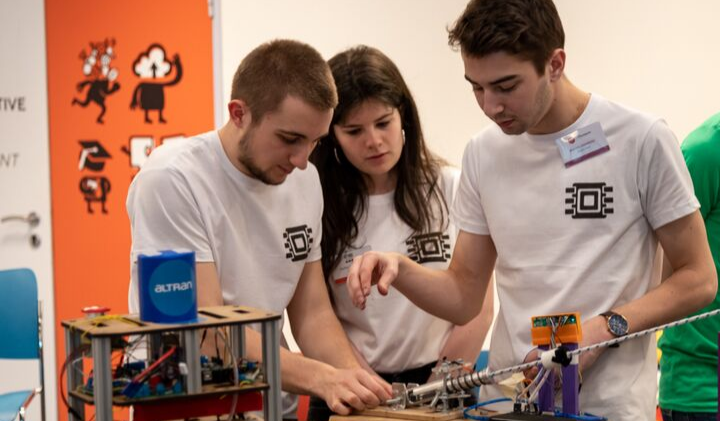Engineering and teamwork are a perfect match. To be a successful engineer is to develop strong teamwork skills in order to ensure a smooth workflow process.
Whether it’s a project team, product development, or a manufacturing team, effective teamwork is the core of technical and engineering operations. Here are 3 ways to work on improving teamwork skills.
Engineering Roles Within a Team
For team members to work well together, they need to be balanced. By having different personalities, different ways of working, and various job positions, tension might occur, but it can be nonetheless avoided. According to a research done by Dr. Meredith Belbin, there are certain roles within a team that can be spotted to be able to function well. To name a few that are present amongst engineers:
- Shapers: these members challenge the way things are done and are always looking for ways to improve both the process and the outcome.
- Implementers: they convert ideas and strategies into manageable tasks other members can work on.
- Team Players: they encourage smooth collaborative work and they usually step up in times of stress, as they are supportive and encouraging to others.
- Coordinators: they calmly listen to others within the teammates before organising them to undertake tasks according to the skills they bring. They often make great team leaders.
- Specialists: the experts who contribute their expertise to other team members. They are often respected for their knowledge and technical know-how.
So, what are the three essential skills for a better engineering teamwork?
Team Support
A successful team has members supporting one another. By demonstrating encouragement, teammates will be immediately motivated to achieve goals and accomplish the given tasks. A sense of loyalty will arise and a faster, smoother, and better problem solving process will take place.
Engineering and Open Communication
The concept of “communicating” means being open, honest and respectful to others, both for their ideas and their personal character. For a healthier and stronger professional bonds, members should feel free to express their own propositions and potential solutions to problems that can occur in any phase of the project.
Mutual Goal
Committing to one goal as a team is the recipe to achieve big things. A clear direction and agreement on what the members are trying to accomplish from the start is the basis of a successful teamwork. And even if a healthy team environment encourages taking risks and thinking outside of the box, but these risks should align with the ultimate end-goal.
In fact, the learning by doing approach at ESiLV engineering school not only makes students better engineers on a technical level, but also improves their soft skills in more ways they can count, particularly their teamwork. Their projects are the perfect example of how members work together early on in their academic journey, while having different roles and personalities to deal with, for the purpose of creating a great project and serving one agreed upon goal.
Developing the skill to see the big picture, to compromise when needed, and to work hard to overcome challenges is a long process that cannot be done alone, and requires everyone’s constant input and effort.
Check out more details about the students’ projects.







